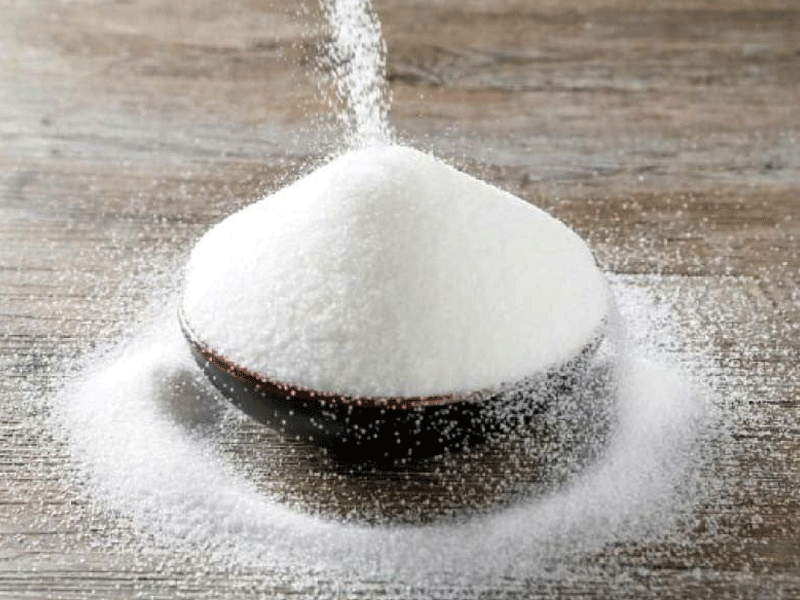Gallup survey on economy and sugar crisis

- 242
- 0
Every three months, Gallup Pakistan compiles a report called the Business Confidence Index on the economic situation after taking the opinions of the business organizations in many respects. Gallup's 10th quarterly report released Tuesday for the second quarter of the current year showed that 60 percent of businesses have a negative view of the nation's economic future, but 40 percent expect things to improve.
The main cause of mistrust is the economic crisis and political instability. However, it is encouraging that despite the economic crisis, inflation and rising electricity prices, businesses are less pessimistic than last quarter and more optimistic than last quarter. The condition has increased by a few percent. The participants of the survey termed the back-breaking inflation as the most important problem, stating that the purchasing power of the people has been greatly reduced due to the increase in prices in addition to the high interest rates in recent months.
Depreciation of the rupee and imposition of taxes are the most highlighted issues in this quarter as well.
The number of businesses experiencing load shedding has increased by 25 percent in this quarter and 69 percent of participants said they are experiencing load shedding.
The Gallup Business Confidence Index consisted of three sections that asked for opinions on current business conditions, future conditions and the direction of the country. The overall business confidence in all three categories remained negative, however, compared to the previous quarter, each has improved by a few percent and overall by 6 percent.
This situation is certainly a ray of hope after a very disappointing situation. In order to maintain the continuity of improvement, it is necessary to speed up the work on a joint political-military plan for economic recovery and to solve the problems of the business class as much as possible.
Meanwhile, the sugar crisis has deepened in the country with the rising prices of the commodity due to alleged smuggling and hoarding of the food items.
The irony is that we have a good production of sugar like wheat but even then the two commodities are becoming dearer with each passing day.
In terms of exporting sugar, Pakistan is the country with the best production in the world, which not only has the ability to meet the food needs of 25 million people, but also earns a lot of foreign exchange from surplus production. The illegal transportation and coming under the scope of parallel economy is giving opportunistic elements an opportunity to play openly. As a result, by creating an artificial shortage, sugar which fetched Rs. 35 per kg four years ago and Rs. 100 per kg last month is currently being sold at Rs. 180 and more across the country.
If this situation continues, the government will be forced to import expensive products by spending a lot of foreign exchange and its prices will increase further. In the current situation, it is alleged that profiteers wo are hoarding and smuggling mafia has earned billions of rupees in the last few days. The common man, who is already burdened by skyrocketing prices of electricity, petrol and essential commodities, can no longer afford expensive sugar.
This has also affected sweets, bakery goods and beverages, whose prices are skyrocketing. Provincial governments are trying to get to the bottom of the facts under the instructions of caretaker Prime Minister Anwar-ul-Haq Kakar. The caretaker government of Punjab province, which is considered to be the center of sugar mills, has attributed the high cost of sugar to the Supreme Court's injunction.
Government sources claim that the injunctions issued on May 4 and August 1, 2023 paved the way for the increase in sugar prices. The Punjab government has held the nexus of mill owners, speculators and brokers responsible for the increase in prices, by which they have earned an extra Rs 55 to 56 billion so far and the sugar situation is getting worse.
The provincial government has initiated legal action for the immediate lifting of the ban so that in light of this, disciplinary action can be taken against those responsible and the stockpiled sugar brought into the market. According to a report submitted to the provincial caretaker chief minister Mohsin Naqvi, due to the injunction, the authorities are unable to monitor the movement of sugar and its smuggling to Afghanistan through Balochistan.
According to the provincial food secretary, the injunction has blocked the acquisition of records of sugar mills, giving hoarders a free hand. The removal of the injunction order will provide the legal justification to take action to the secret agencies in addition to the relevant provincial departments and the roundup of law breakers will be possible. It is necessary to bring the prices back to normal.
The artificial shortage of sugar is part of the game to justify its import, which not only wastes the country's valuable foreign exchange, but also mobilizes the opportunists in the sector.
Due to this, the produce coming to the market cannot be sold at the fixed price. On the other hand, the smugglers mafia has become so organized and powerful that it is creating economic chaos in the country by creating artificial scarcity of one essential commodity after another.
Federal and provincial governments and law enforcement agencies need to agree on a plan of action in this regard. People who play with the problems of the poor people and corrupt bureaucrats and government officials do not deserve any concession. However, disciplinary action against them is necessary.
Published in The Daily National Courier, September, 08 2023
Like Business on Facebook, follow @DailyNCourier on Twitter to stay informed and join in the conversation.

















































